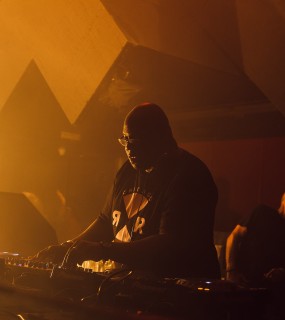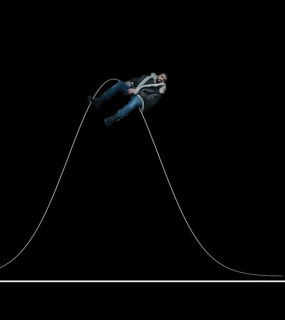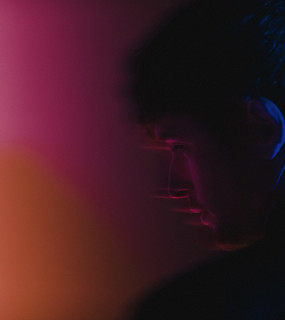Sault Ste Marie – The House By Wilshire
Sault ste marie is one of those acts that make you wonder how their name hasn’t yet blown up. On his SoundCloud page, you can find material dating back a year ago that flips between chillwave-like electronic and acoustic-led indie-folk, but, again, the plays that his tracks have received pale in comparison to the quality sounds he has put out. Currently, the the artist has no social media pages, but, as we’ve gotten used to saying here, the music really is the star, and you’re definitely going to want to set aside some time to immerse yourself in what gorgeous works he has.
Read the rest of this article at Hillydilly
RY X – Deliverance
After becoming completely entranced by RY X at his live show a few weeks ago, I’ve found him popping up all over my music radar. For all my trivia fans out there, this illusion of frequency is called the Baader-Meinhof phenomenon. You’re welcome.
At the show, his original version of “Deliverance” caught my attention more than the other songs given its steady beat and dance potential. Imagine my excitement at discovering Fort Romeau answered my prayers with a smoothly executed remix.
Without disparaging the ethereal, exuberant breathlessness of the original, the French house producer builds a structure around the beautiful simplicity of the vocals. Using 4-on-the-floor beats, and erratic, spacey synths, the track has an almost trance-like feel to it.
Read the rest of this article at Indie Shuffle
Radiohead – Burn The Witch
Radiohead have been paranoid androids for nearly two decades, but they haven’t exactly been wrong. In the time period spanning from 1997’s OK Computer to 2003’s Hail to the Thief, no one made music that, with just a little hindsight, seemed so prophetic, so tapped into the impending fears of our time, whether it was consumerism, social alienation via technology, political apathy, or terrorism. “Burn the Witch,” their first new single in five years, is a direct line to this golden era of Radiohead. It’s no wonder, given the song’s lingering presence throughout the sessions and accompanying tours for Kid A, Hail to the Thief, and In Rainbows—not that drawn-out workshopping is uncommon for Radiohead. But the wait—both for the band and the fans—was worth it: “Burn the Witch” has the makings of an all-time great Radiohead song.
Read the rest of this article at Pitchfork
DJ Koze has put together the first-ever label compilation for his and Marcus Fink’s Pampa Records. Pampa Vol. 1 features tracks from Gold Panda, Roman Flügel, and Mount Kimbie. Koze previously shared a great remix of Lianne La Havas’ “Lost and Found” by Matthew Herbert that’s set to appear on the collection. The release also includes a collaboration between Jamie xx and Koze (under his Kosi Kos alias) called “Come We Go.” Today, the entirety of Pampa Vol. 1 is available to stream;
Read the rest of this article at Vice
Classixx – Just Let Go Feat. How To Dress Well
The California production duo Classixx have perfected their own take on dance music, one that’s light and clean and shimmering and, at its best, just stunningly gorgeous. The duo’s 2013 album Hanging Gardens really snuck up on me, and now they’ve announced plans to follow it up with a new one called Faraway Reach, as Pitchfork points out. We’ve already heard a couple of its songs: The album opener “Grecian Summer” and the great T-Pain collab “Whatever I Want.” The LP will also feature tracks with people Passion Pit and Holy Ghost!’s Alex Frankel, as well as bedroom-soul traveler How To Dress Well. “Just Let Go,” the How To Dress Well collab, is one of those tracks that makes me wish everyone involved would just form a new group and keep making tracks just like it. Listen to it and check out the Faraway Reach tracklist below.
Read the rest of this article at Stereo Gum
News
The End of an Era: Carl Cox weighs in on his final year at Space Ibiza

Read the rest of the story at The Dancing Astronaut
Drake & Why Rappers Fall Off After 5 Years

In 2009, Drake released the seminal mixtape So Far Gone and breakout hit “Best I Ever Had.” His inherent superstardom was obvious even back then. He had the music, the charisma, and the pedigree to reign on the charts. It’s seven years later, and Drake dropped his fourth studio album, Views, last week. The reviews have been pouring in, and with a 69 on Metacritic and 69 million hot takes on Twitter, the consensus seems to be that VIEWS isn’t Drake’s best work. But that hardly matters. Next week, it’s likely “One Dance” will overtake Desiigner’s “Panda” and—like Drake says on “Pop Style”—they’ll “Give a real nigga the number one.” Once he finally scores the elusive No. 1 Billboard hit he so desperately craves, and sells nearly a million his first week, Drake will have completely fulfilled all the promise of his potential.
But it’s all downhill from here.
There’s a reason why I’m convinced that Drake’s glorious reign won’t last. Since maybe 2005, I’ve been messing with the idea that rappers’ primes only exist in fiveyear windows. I call it the FiveYear Theory Of Rap. It’s not that a rapper’s career can’t last more than five years (plenty have) but a rapper can only be in his or her prime for five years before the culture inevitably shifts. Yes, you can still be a technician of the genre where your mic skills never fade, but it doesn’t matter if you aren’t relevant. In a fiveyear span, middle school kids turn into high school kids who turn into college kids who start living in their mothers’ basements. After five years you get the “I miss the old Kanye” conversations. After five years your celebrity can outweigh your musical output. After five years your idols become your rivals. After five years, well, damn homie, in high school you was the man, homie.
Read the rest of the story at Pitchfork
James Blake and The Pursuit of Happiness

It’s easy to understand where James Blake gets his reputation.
In the six years since his career took off with a major label deal, the British songwriter has become a master of his own style ofmelancholy, dub-inflected songwriting. His distinct falsetto—first used sparingly amid mysterious electronic tracks, now an inimitable hallmark of his sound—is often warped with reverb and digitization to sound hauntingly lonely, or robotic, or whatever else his meticulously assembled elegies call for. After two critically acclaimed albums’ worth of this, a Mercury Prize, Brit and Grammy nominations, and hundreds of worldwide tour dates, it makes sense that he’s now known as one of music’s most somber sad boys. He gets the same jokes that follow Bon Iver’s Justin Vernon around—you know, the ones that suggest they’re actually magical woodland creatures. (No wonder the two men are now close friends and collaborators.) Blake knows his stone-faced public demeanor—or his phantom forest music videos—hasn’t done much to dispel that image, either.
“There are a lot things I thought I was—and that maybe I tried to portray myself as being—and one of those things was ‘serious,’” the 27-year-old says, emphasizing that last word dismissively, like he no longer believes it even exists. “That wasn’t me.”
Read the rest of the story at Genius







